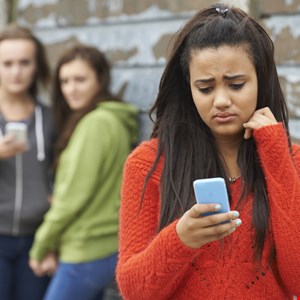- I recommend the Pixel 9 to most people looking to upgrade - especially while it's $250 off
- Google's viral research assistant just got its own app - here's how it can help you
- Sony will give you a free 55-inch 4K TV right now - but this is the last day to qualify
- I've used virtually every Linux distro, but this one has a fresh perspective
- The 7 gadgets I never travel without (and why they make such a big difference)
Two-Thirds of Irish Women Harassed Online

A survey by a global humanitarian NGO has found that two-thirds of Ireland’s young women and girls have been harassed while using the internet.
The research, conducted by Plan International, found 67% of young female users had been subjected to virtual violence while online. In the majority of cases, the abuse was perpetrated via the social media platforms Snapchat and Instagram.
Among the harassing behaviors experienced by victims was cyberstalking, threats of sexual or physical violence, being sent unsolicited sexually explicit images or messages, and being in receipt of abusive and threatening messages or comments.
The highest volume of harassment was experienced by girls with disabilities, girls and young women from the LGBTQ+ community, and girls and young women from racial and ethnic minorities.
Many girls said that they had become targets of abuse after posting content in which they expressed their personal views. For 15% of the victims, the impact of the online harassment was felt so keenly that they have simply stopped sharing their views virtually.
On average, girls in Ireland first start experiencing online harassment at the age of 13. The youngest age at which online harassment was experienced was recorded as eight years old.
According to victims, the nature of the abuse they experienced revolved around physical appearance and gender. Just over half (54%) of girls said they believed their gender identity had been targeted, while 86% said they had been attacked over the way they look.
Asked about the efficacy of abuse-reporting mechanisms on social media platforms, girls in Ireland said companies were too slow at deleting abusers’ accounts. They also complained of abusers creating fake profiles to carry out their abuse while hiding their identities.
Fourteen thousand girls and young women aged 15–25 from 22 countries took part in the research. Globally, the percentage of girls and young women who experienced some form of online harassment was 58%.
For a quarter of the victims, the abuse was so bad that it had made them feel physically unsafe in their offline lives. Three-quarters of the girls said the harassment had lowered their self-esteem and degraded their self-confidence, while 65% said it had caused them emotional or mental stress.

